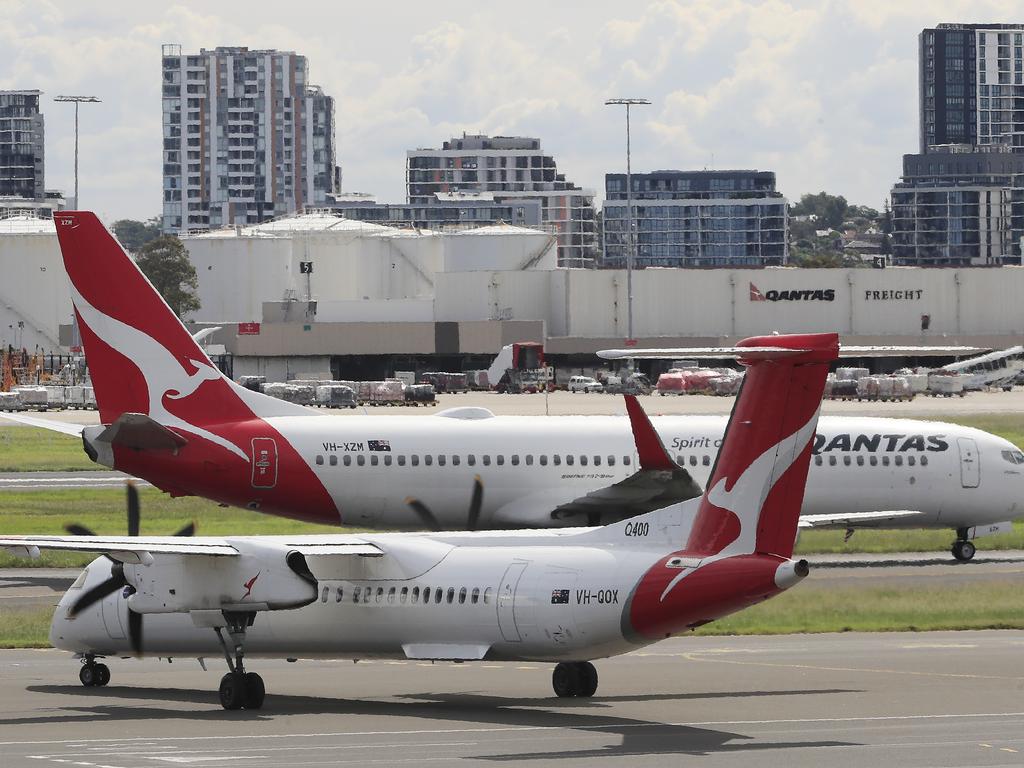Police health fears trigger call for guidance
Police are calling for more guidance on how to safely interact with the public during the coronavirus pandemic.

Federal police want more guidance on how to safely interact with the public during the coronavirus pandemic, as police forces nationwide grapple with how to keep staff healthy to maintain law and order.
Australian Federal Police Association president Angela Smith said members, particularly those dealing with the public at airports, in protective services roles and at ACT Policing, were concerned and “looking for direction”.
“There has been no direction yet about random breath and drug testing, watch-house procedures, arrests and people just coming up and talking to them,” Ms Smith told The Australian.
“People see a police officer and they want to talk to them about various things.’’
The AFP appeared to be “doing its best”, putting Deputy Commissioner Neil Gaughan in charge of its response, but was behind some of the state police forces, she said.
The comments come after police in NSW, Victoria, Queensland and WA confirmed they had stopped static random tests of drivers for alcohol and drugs due to the risk of spreading the virus.
Ms Smith also questioned how police would safely enforce mandatory 14-day self-isolation for people arriving from overseas.
Queensland police have conducted more than 1850 spot checks on individuals in quarantine with no enforcement action to date, with fines of up to $26,690 for non-compliance.
“We don’t want our members to do random breath and drug testing. It’s risky doing arrests at the moment and being in direct contact with the public,” Ms Smith said.
“So if we’re then being forced to knock on people’s doors for people who are being quarantined, with or without the coronavirus, then members are put in direct risk of contracting the virus.
“Pulling back on all the public contact stuff, to then make them go and check on quarantined people, seems a bit counter-intuitive. There would have to be a very strict procedure to follow.
“You have got to take identification of people to check that is the right person. You can’t just take people’s word for it. It opens up a whole different set of questions then, and risks.”
The AFPA’s 4000 members were particularly looking for guidance on leave, Ms Smith said.
“I know from a verbal conversation that people can take leave with pay.
“But is that everybody, does it include sick leave, carer’s leave, how long can they take leave for? Those sort of things haven’t been answered.”
An AFP spokesman said operations around the safety and security of the community would continue.
“Some lower-priority investigations may be delayed. Such decisions will be made in accordance with the AFP’s prioritisation model,” the spokesman said.
The AFP was working closely with the departments of health, home affairs and foreign affairs to ensure the safety of personnel, he said.
“The AFP has adopted a range of precautionary measures to protect staff.
“All staff have been reminded on the importance of hand hygiene, cough etiquette and social distancing.
“Staff are encouraged to report ill-health to the AFP dedicated coronavirus email address and or hotline.
“The AFP is operating consistently within the whole-of-government approach to sourcing Personal Protective Equipment.”
The Police Federation of Australia is contacting commissioners of police forces nationwide to push for the suspension of all “non-essential” policing services.
The PFA is also seeking to discuss a host of other concerns of officers, including arrest protocols, the suspension of training, and how to deal with sections of the community that are vulnerable to the virus.








To join the conversation, please log in. Don't have an account? Register
Join the conversation, you are commenting as Logout